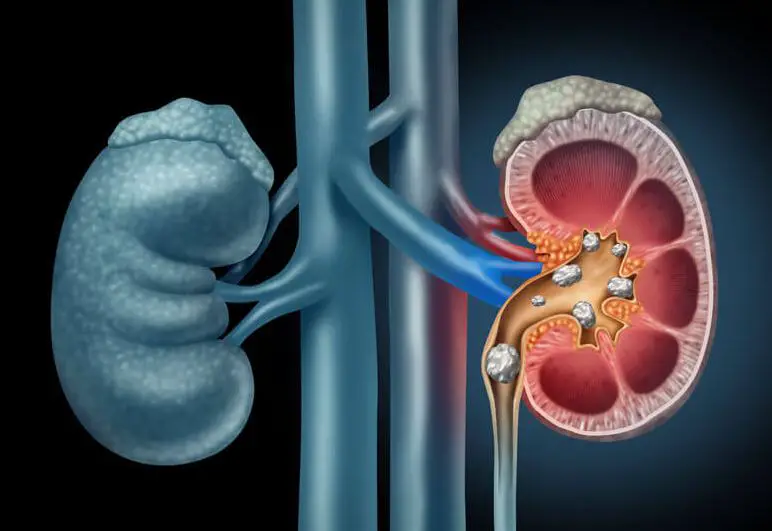Suddenly your kidney stone pain is gone: This is great news, especially if it has been several days and you haven’t felt it at all. But you may be wondering what caused the sudden disappearance. Here are some things to consider.
Table of Contents
Symptoms of a stone attack
Symptoms of a kidney stone attack include pain and fever. The pain is usually the first indication that you have a stone. You can also see blood in your urine. Symptoms of a kidney stone attack may last for several hours.
There are many causes of kidney stones. The most common are calcium oxalate stones. These stones form when calcium and oxalate combine in your urine. They can form as a result of low calcium levels or dehydration.
Small kidney stones can be detected by ultrasound or x-rays. Other signs include nausea, vomiting, and blood in the urine. If you experience any of these symptoms, seek medical attention immediately.
Other symptoms of a kidney stone attack include pain in the back, lower abdomen, and groin. If the stone is large, it may be painful or cause inflammation. Pain may also change location and radiate to the belly and genitals.
You may also notice a heightened desire to urinate. This can be a sign that the stone is moving through your urinary tract.
Symptoms of a stage 2 attack
Symptoms of a stage 2 kidney stone attack vary according to where the stone is in the urinary tract and what is causing it. Symptoms may include pain and vomiting. The pain may be mild or severe. Some people toss and turn to find a comfortable position to relieve the pain.
Some people have a fever. If you have a fever, it is important to see your doctor immediately. In addition, you may have an infection that may require treatment. A fever may indicate an infection in your kidneys or urinary tract.
Kidney stones can be caused by an infection, a blockage in the urinary tract, or a change in the composition of your urine. In addition, your urine may be alkaline or more acidic.
Kidney stones are hard crystals that can block the flow of urine. They are usually small, and can be detected by ultrasound or x-rays. A standard x-ray of the kidneys can detect 80% of stones.
Treatments for kidney stones
Symptoms of kidney stones include sudden, sharp pain in the side, back, or lower abdomen. They may also cause fever, nausea, vomiting, and blood in the urine. If these symptoms are not relieved, you should seek medical attention immediately.
Kidney stones are caused by a buildup of minerals and other substances in the body’s urine. These can stick together to form a stone. Stones can range in size from a grain of sand to a golf ball. Smaller stones can pass on their own, while larger stones can block the urinary tract and require medical intervention.
Kidney stones can also be caused by an infection. If the stone is infected, it can cause nausea, vomiting, and other symptoms. Treatments for kidney stones that are infected include surgery or medication.
There are four types of stones. These are calcium oxalate, cystine, uric acid, and struvite. These stones are generally treated by a urology specialist. The stone may be broken up with laser or with extracorporeal shock wave lithotripsy.
Preventing kidney stones
Trying to prevent kidney stones may involve a few changes in your diet. It is important to drink lots of fluids to help flush out toxins in your body. You also should avoid alcoholic drinks and sugary drinks.
Taking medicines that can reduce the risk of kidney stones are also helpful. These medications can reduce uric acid and calcium levels in the urine. They may also help pass the stones easier.
If you are worried about getting kidney stones, you can try to reduce the risk by limiting the amount of salt in your diet. You should also limit the amount of animal protein you eat.
If your stone is large enough, you may need surgery to remove it. Surgical treatments can involve using a laser or extracorporeal shock wave lithotripsy. These methods are less invasive than some surgeries.
Medications can help ease the pain and keep you comfortable. You may also need to take prescription medicine based on the characteristics of the stone.

